Alex Wu - Award-winning director reveals how his past is framing his future
Alex Wu's storytelling prowess has captured the gaze of the film world. Here, the award-winning film graduate opens up on why telling stories is all he's ever wanted to do.
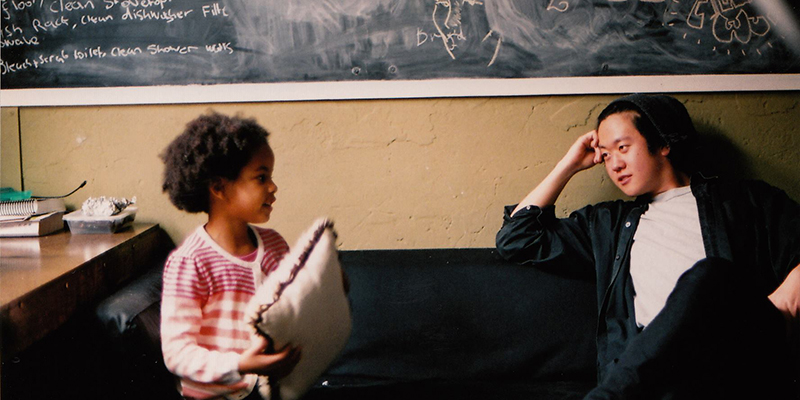
It's not often a graduate film catches the eye of so many. Yet that's exactly the case for Alex Wu, whose powerful, one-take, 18-minute short, IDOL has impressed cinephiles and film judges the world over, scooping Sydney Film Festival's Dendy Award for Australian Short Film.
It's a long way from the local DVD store in Canberra, where Alex first fell for the power of moviemaking. But for Alex, it feels like the first step on his steep mountain of growth.
We caught up with Alex to reflect on how his time at the University of Melbourne’s Victorian College of Art (VCA) School of Film and Television has affected his craft, how learning to ask for help unlocked creative freedom, and why he'll always pick relationships over accolades.
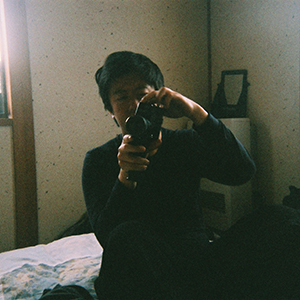
Hi Alex. When did your love of filmmaking begin?
I grew up in Canberra, where there isn't a whole lot to do. It was there I fell in love with watching movies and developed a love for cinema. It looked like the hardest thing in the world to do, and I really wanted the challenge of trying that myself.
What attracted you to the VCA?
The School of Film & Television at the Victorian College of Art (VCA) first came onto my radar in year 12. I knew I wanted to be there, studying with people as obsessed with film as I was. I'd studied media and production in Sydney for a year, but the course wasn't really inclined in making films. I was a bit deflated at that point. So I talked to a student in the year above me who had gone on to study at the VCA and asked, "What do you do there?" She said, "Well, on Monday we read scripts, on Tuesday we watch movies, on Wednesday we learn our craft." I told her she could stop there. It sounded perfect.
How was your experience at the VCA?
I remember making an experimental short film in my second year. I'd poured my all into making it, then got to the end of the exercise only to ask, "Is anyone going to like this?" Some of the best advice I ever got was from one of my tutors, Siobhan Jackson. She told me, "You're here to experiment and you're going to learn so much more from your failures than your successes." But what really stuck with me was when she said, "Finishing a film, any film, is hard. If you still believe you want to make another film after that, then what you've done is a success." That's something I still think about, because it really does take a lot of grit and self-determination to push yourself forward in this field.
Were there any challenges you had to overcome? If so, what lessons did you learn?
One of the biggest lessons I learned was the idea of responsibility. I had this expectation that I'd learn more if I tried to do everything, which meant I was really bad at asking for help. But filmmaking simply doesn’t work like that. I had to learn how to ask for help and get comfortable with the idea that it’s OK to not do everything.
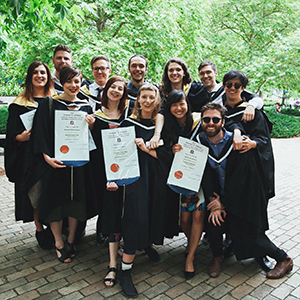
What advice would you give to students preparing to graduate?
Be a good person. You always hear horror stories of people being tyrants on set and it's not a good experience for anyone. Why would you torture the people giving up their time and energy to help you? Relationships are everything. These are the people you celebrate your successes with and the same people who will pick you up after your failures. These are the things you'll remember long after university.
You've had immense success recently. Is this where you saw yourself?
It's always dangerous to have expectations. There are so many things you can't predict that can change the course of a life. Even getting into the University of Melbourne’s VCA began with a chance encounter. I knew I couldn’t have expectations about making feature films in my twenties, either. The industry isn't massive in Australia and a lot of directors only find their footing later on in their careers. However, I did know I was in it for the long game. I told myself as long as I kept chipping away, I'd be able to achieve over time. I think I'm much more capable now than I was in my early 20s. If I'd found big success in my early 20s, I'd be a nervous wreck now.
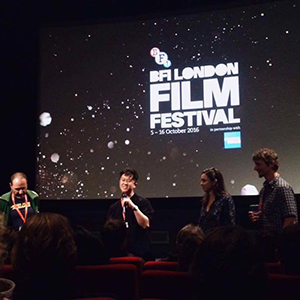
What's the one thing that's helped you get where you are today that is not on your CV?
Confidence. I had social anxiety heading into the University of Melbourne. I worried what people thought of me, and it's easy to say, "I'm no good at being articulate." However, confidence is just like any other skill you learn and develop. Your first painting is never going to be a Van Gogh, and that's okay. You will make mistakes. You will say the wrong thing. But every time you do, you become more comfortable with your own authenticity. And if you can brush off those insecurities, life becomes infinitely easier.
What are you working on right now?
Ha. The question of the hour. Until recently, I'd focused on my craft and the medium. Then I had the huge honour of winning the Dendy award. That's opened doors for me. I've since met and signed with an agency. I've been fortunate enough to meet production companies, producers, and development people. I'm now getting an idea of all the networks that exist. It has spurred me on to write a feature. Right now, that feels like a big and exciting challenge. But the ultimate goal is to become a better storyteller, writer and director. And for me, the only way I feel I'll be able to achieve those things is if I write my own stories and direct them.
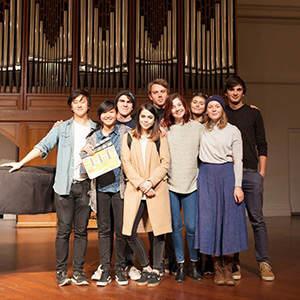
What excites you about your future?
I finally feel like I've arrived at the foot of the mountain. At university, I felt I was in a car looking for the mountain. But now I'm actually at the foot. I can see different paths on the mountain, and people I know at different points. And I genuinely believe exciting things are happening in Australia's film and television industry. The world has become more globalised, and I think there's a real appetite for Australian content. Netflix have a team in Australia now, so that's just one example of how providers are thinking about how to meet that demand. We have massive potential. It's just a matter of time before we get there. I'm aware there's still a long way to go. I know it's going to be difficult, and there will be successes and failures. But there's a lot to look forward to. And I really can't imagine being this passionate or caring this much about anything else.